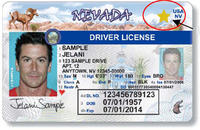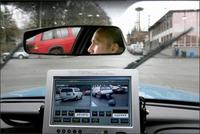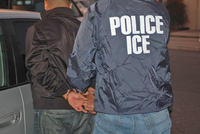-
New laws help cut metal thefts

Metal thefts have become a plague to businesses throughout the country; some states pass laws which require licenses and permits to buy and sell non-ferrous metals; Spartanburg, South Carolina, also requires that buyers pay for the purchases with checks rather than cash, in order to create a paper trail to the seller of the metal
-
-
DHS: No extension to next January’s REAL ID deadline

DHS tells Congress that the department “has no plans to extend” the REAL ID deadline for state compliance, set as 15 January 2013
-
-
Court deadline for U.S. govt. to explain MEK position

Today is the deadline for the U.S. Department of State to explain to the U.S. Court of Appeals for the District of Columbia Circuit why the department would not remove the Iranian anti-government movement MEK from the U.S. terrorist watch list; the MEK engaged in terrorist activities against the current regime in Iran, but renounced to use of terrorism after 9/11; the EU has removed the MEK from its terrorist list a few years ago
-
-
California bill would restrict data usage from license plate scanners

Legislation has been introduced in California to limit the use of data gathered by patrol car-mounted license plate readers, and the duration for which such data may be held; access to the data by other agencies and personnel would be limited as well
-
-
NYC cyberattack simulation to spur Senate cybersecurity legislation

Last Wednesday, in an attempt to bolster support for cybersecurity legislation, the White House staged a mock cyberattack on New York City’s power supply for the Senate
-
-
FCC explores grating local police authority to shut off mobile networks
The U.S. Federal Communications Commission (FCC) is currently seekingpublic comment on whether it is appropriate for law enforcement agencies to shut down cell phone networks
-
-
Fearful immigrants trickle back into Alabama
After Alabama enacted its tough new immigration laws last September, the state saw a large exodus of fearful immigrants who packed up their entire families and fled the state; since the law went into effect, some illegal immigrants have begun returning to the state
-
-
DHS suspends expansion of Secure Communities in Alabama

Due to ongoing federal litigation against Alabama’s tough new immigration laws, DHS has halted the expansion of the Secure Communities immigration program in the state; the law has been tied up in legal battles, and a federal appeals court has already blocked portions of it
-
-
Statistical model removes barriers to using fingerprint evidence in court
Potentially important fingerprint evidence is currently not being considered in legal proceedings owing to shortcomings in the way it is reported; researchers have devised a statistical model to enable the weight of fingerprint evidence to be quantified, paving the way for its full inclusion in the criminal identification process
-
-
Legal expert: NDAA does not comply with Constitution

Shayana Kadidal, the senior managing attorney at the Center for Constitutional Rights, recently spoke with Homeland Security NewsWire’s executive editor Eugene K. Chow; in the interview Kadidal discusses the legal challenges of closing Guantanamo Bay, the legal consequences of the recently passed National Defense Authorization Act (NDAA), and the Obama administration’s position on transferring detainees
-
-
DHS: more than 1,600 deportation cases should be closed
As part of the Obama administration’s ongoing efforts to shift its immigration policy to deporting dangerous illegal immigrants, last week DHS officials recommended canceling deportation proceedings against more than 1,600 illegal immigrants in Denver and Baltimore who were not deemed a threat
-
-
Experts: SOPA, PROTECT IP will stifle creativity, diminish free speech
Legal experts say that Stop Online Piracy Act (SOPA) are to intellectual property what the Communications Decency Act was to “indecent” online material — an incredibly powerful, blunt instrument that would drastically diminish free speech
-
-
Congressional approval of cybersecurity bill looks promising

Amid the partisan acrimony of the budget battles on Capitol Hill, the Obama administration and the Senate have made promising efforts to pass a sweeping cybersecurity bill in a rare show of bipartisan agreement; the bill is now at the top of the Senate’s agenda, and Senator Harry Reid (D – Nevada), the majority leader, said he plans to bring the bill to the floor during the first working session of 2012
-
-
Drones and privacy
With civilian unmanned surveillance drones now capable of listening in on cell phone conversations, monitoring Wi-Fi traffic, seeing into backyards and windows not visible from the street, and tracking a person’s movement privacy advocates are concerned that the rapid advances in technology could violate privacy rights
-
-
Facebook facial recognition proving problematic overseas
A German court ruled that Facebook’s facial recognition software is in violation of German and European privacy laws; the company has until 7 November to amend its software to comply with German and EU laws or else it will face legal action
-
More headlines
The long view
The Center Can Hold — States’ Rights and Local Privilege in a Climate of Federal Overreach
As American institutions weather the storms of executive disruption, legal ambiguity, and polarized governance, we must reexamine what it means for “the center” to hold.
How to Reverse Nation’s Declining Birth Rate
Health experts urge policies that buoy families: lower living costs, affordable childcare, help for older parents who want more kids
Turnover Among Election Officials Reaches New High: Report
Election officials turned over at the highest rate in at least a quarter century during the last presidential election. Nearly 40 percent of election officials administering the 2024 election weren’t around in 2020.
Voting from Your Sofa Is Secure Enough – but Will It Be Allowed?
A new electronic voting system developed at NTNU can withstand attacks from quantum computers, meaning digital elections can be conducted securely, even in the future.
